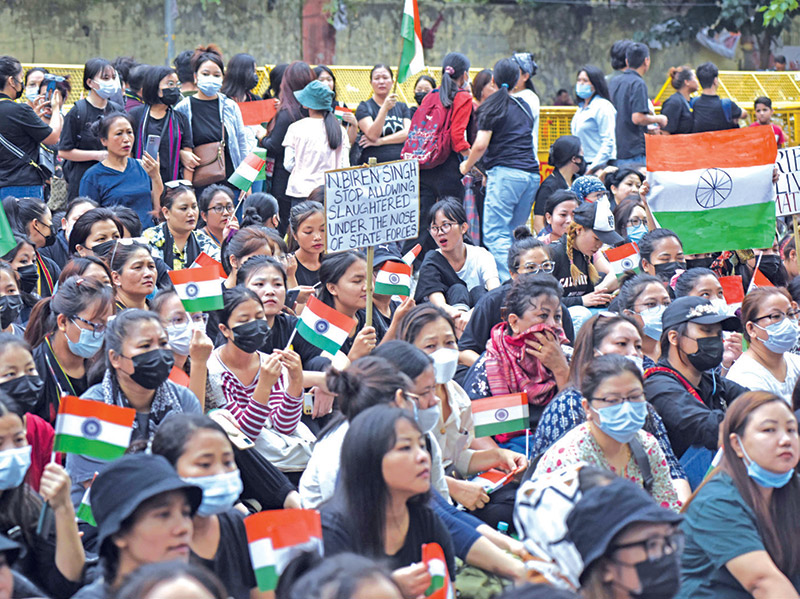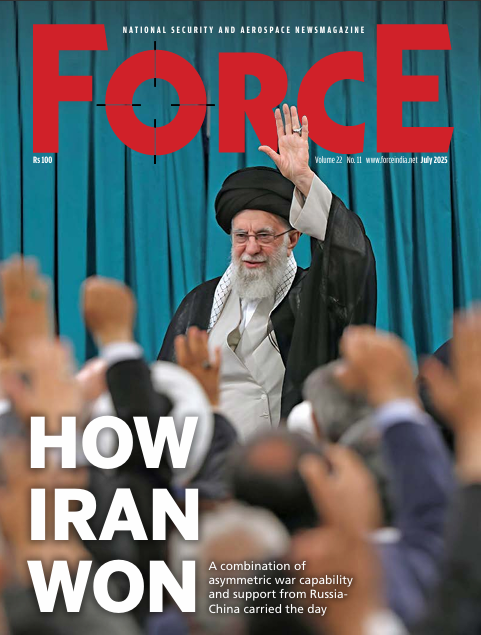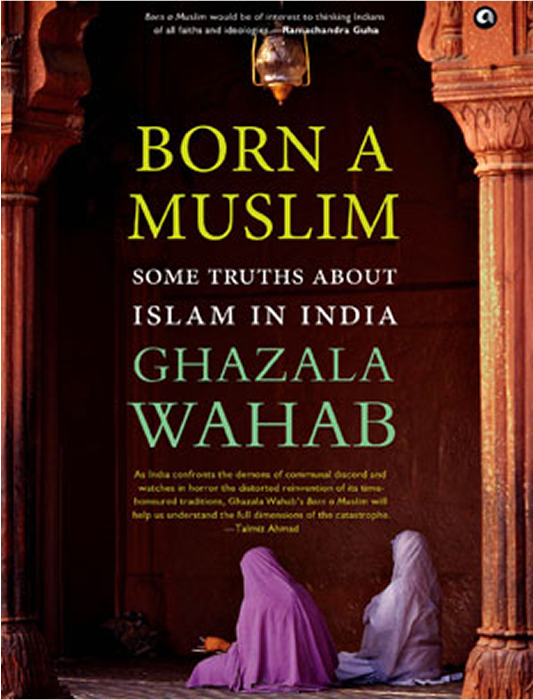Unending Turmoil
Mohammad Asif Khan
Identity politics has deprived Manipur of people who can speak for the entire state, which now stands deeply and tragically divided, writes Nandita Haksar in her new book, Shooting the Sun. The book examines how Manipur has been torn apart by violence since March 2023, while the government remained silent. The ethnic conflict in Manipur began in early 2023 when the Meitei community's demand for Scheduled Tribe status escalated tensions with the Kuki tribes.

In April 2023, the Manipur High Court ruled in favour of the Meitei community, recommending they be granted Scheduled Tribe status under the Indian Constitution. This status offers special rights and benefits to historically disadvantaged groups. However, the Kuki-Zo communities, residing primarily in the hills, saw this as a threat to their rights and resources. This decision ignited pre-existing tensions, leading to widespread violence between both sides.
Now, after a year of ethnic clashes, tensions in Manipur remain high. While large-scale violence has subsided, smaller conflicts continue to claim lives. Despite assertions that peace has returned, the situation remains volatile and hostile. The conflict’s scars run deep—over 221 lives have been lost, 67,000 families displaced, and there are numerous reports of violence and sexual violence against women. Vigilante groups operate unchecked, with the state effectively divided between armed Meitei groups in the Imphal Valley and insurgent Kuki tribes controlling the hill areas, including the city of Churachandpur.
According to the 2024 Global Report on Internal Displacement by the Geneva-based Internal Displacement Monitoring Centre (IDMC), the northeast Indian state of Manipur witnessed the highest displacement triggered by conflict and violence in South Asia last year.
State Complicity and Ignorance
Under Chief Minister N. Biren Singh, the state government has been accused of complicity in the ethnic conflict. An internal report by Assam Rifles accessed by Al Jazeera accuses the BJP-led state government of inflaming the conflict with their stance on several issues, creating ‘divisions between communities’. Despite the violence, Singh’s incumbency endured and paradoxically emerged stronger. The charge that a Meitei chief minister acted as an unabashed partisan granted him endless immunity. However, allegations of state complicity persist.
Singh attempted to resign on 1 July 2023. However, his supporters prevented him from going to the governor to tender his resignation. There was high drama outside the chief minister’s residence and Raj Bhavan as reports of his resignation surfaced. Supporters urged Singh not to resign and publicly tore up his resignation letter. Later, Singh tweeted that he had decided not to resign ‘at this crucial juncture.’ Prime Minister Narendra Modi was largely silent on the issue of Manipur. This silence sparked a no-confidence motion against his government in Parliament. During a parliamentary debate, Modi appealed for peace only after opposition lawmakers staged a walkout in frustration. It was Modi’s first statement about the violence in Manipur.
On the international front, the United Nations (UN) and the European Union (EU) have expressed concern over the situation. In October 2020, the UN High Commissioner for Human Rights appealed to India to safeguard the rights of human rights defenders. The European Parliament, in a resolution dated 13 July 2023, strongly urged the Indian authorities to take all necessary measures and make the utmost effort to promptly halt the ongoing ethnic and religious violence, to protect all religious minorities, such as Manipur’s Christian community, and to pre-empt any further escalation. It also called on authorities to grant unhindered access to the area for journalists and international observers and to end internet shutdowns.
Ethnic Divide Between Security Forces
Conflict in Manipur is intricately linked to the ethnic divide between the state’s police force, dominated by Meiteis, and the Assam Rifles, a central paramilitary force with a significant presence in the region. This ethnic difference has played a role in hindering operations and enabling violence in several ways. The Meitei community largely perceives the Assam Rifles, composed primarily of Nagas, as favouring the Kuki-Zo groups. This perception stems from historical grievances and alleged incidents of the Assam Rifles turning a blind eye to Kuki attacks on Meitei civilians. The lack of trust between the two forces hampers effective communication and collaboration. This disrupts joint operations and investigative efforts, creating gaps that armed groups exploit to carry out attacks. An example of this was the reported filing of an FIR (first information report) by the Manipur Police against Assam Rifles personnel in 2023. The FIR alleged that the Assam Rifles obstructed police movement, allowing Kuki militants to escape.
Alice Ngaipilhing, a social activist from the Kuki community and a member of the Kuki Students' Organisation (KSO), says she does not trust the police service with her and her family’s safety because, “The security forces are completely biased. They did nothing when our villages were attacked. In some cases, they even helped the other side (Meiteis). It is clear that they are not neutral, and their actions have only deepened the ethnic divide.” The ethnic divide between security forces weakens their ability to protect civilians caught in the crossfire. Communities lose faith in both forces, leading to a sense of vulnerability and fuelling the cycle of violence. The displacement of over 60,000 people due to the ongoing con
Subscribe To Force
Fuel Fearless Journalism with Your Yearly Subscription
SUBSCRIBE NOW
We don’t tell you how to do your job…
But we put the environment in which you do your job in perspective, so that when you step out you do so with the complete picture.








